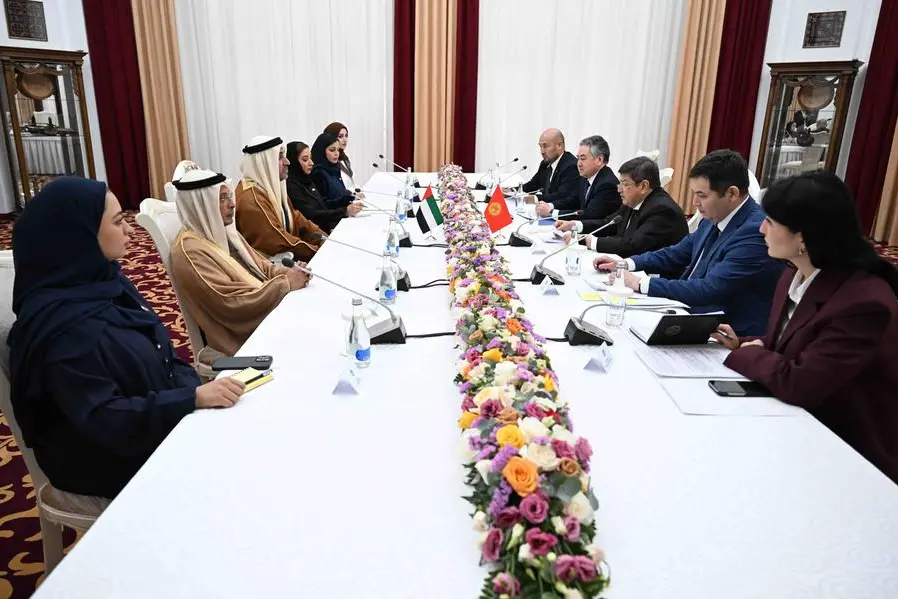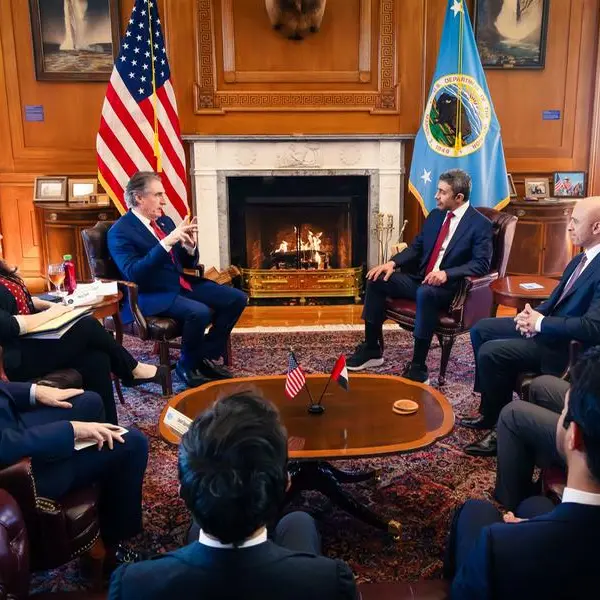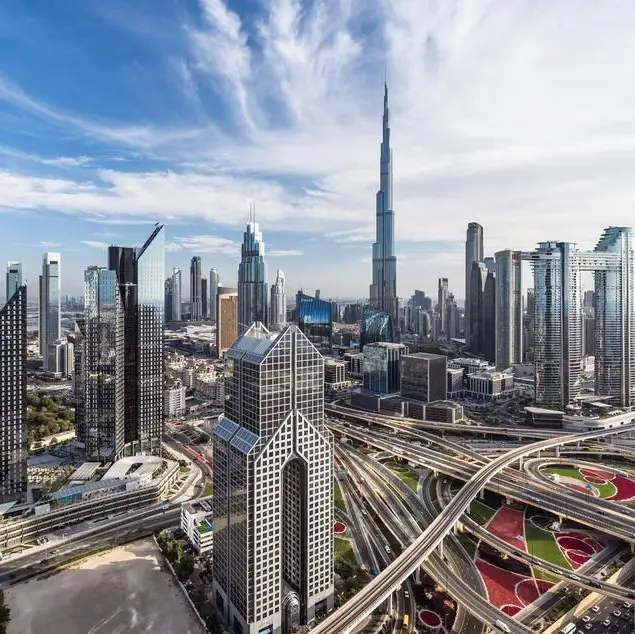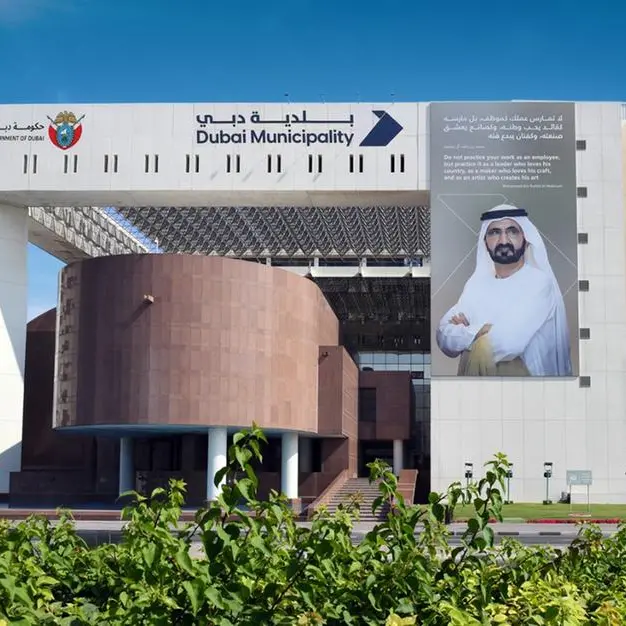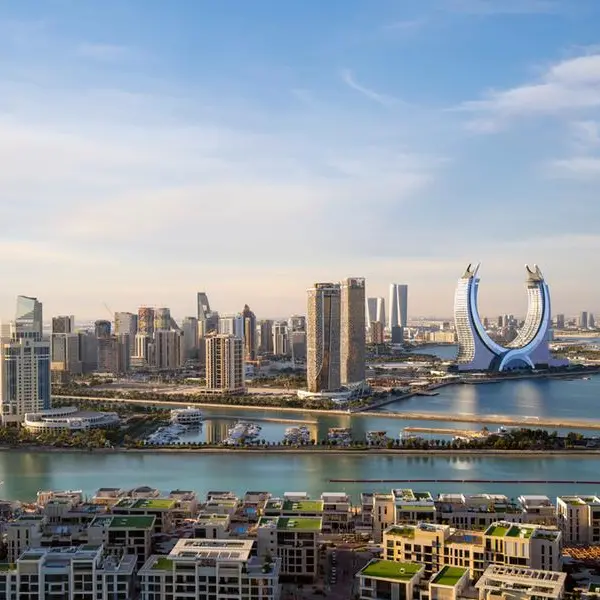PHOTO
The governments of the UAE and Kyrgyzstan launched the second cohort of government accelerators, as part of the recent visit by a delegation from the Knowledge Exchange Office of the Ministry of Cabinet Affairs to Bishkek, the capital of Kyrgyzstan, to discuss ways to promote fruitful cooperation and expand the partnership between the governments of the two countries in the fields of government modernisation and development.
The delegation included Abdulla Nasser Lootah, Deputy Minister of Cabinet Affairs for Competitiveness and Knowledge Exchange, Dr. Mohamed Saeed Mohamed Alariqi, the UAE Ambassador to the Republic of Kazakhstan, and the non-resident Ambassador of the UAE to Kyrgyzstan and Tajikistan, and the team of the Government Knowledge Exchange Office in the Ministry of Cabinet Affairs.
Abdulla Lootah: Kyrgyzstan accelerators are a success story of our strategic partnership
Abdulla Lootah stressed that the government accelerators in the Kyrgyz Republic is a success story of the strategic partnership between the UAE and Kyrgyzstan in the fields of government modernisation. It reflects the joint endeavours to accelerate innovation and develop solutions to the challenges facing the government.
“Launching a new cohort of government accelerators in Kyrgyzstan builds on the success of the first cohort which achieved its goals and resolved its challenges within a record time of less than 100 days. It reflects the development of the partnership between the governments of the two countries and their constant efforts to expand their cooperation, reflecting positively on the governments and societies of the two friendly countries,” he added.
4 challenges
The second cohort of government accelerators in Kyrgyzstan focuses on the challenges of attracting foreign investment and improving the investment and economy legislative structure. It includes the challenge of accelerating the local exports mechanism, accelerating the issuance of goods documents and approvals, issuing certificates for newborns, simplifying vehicle registration and re-registration procedures.
The first cohort of government accelerators succeeded in developing innovative solutions to the challenges it tackled, including reducing barriers to opening nurseries and facilitating children enrollment, increasing the rates of use of electric vehicles, and improving service delivery and accelerating digital transformation.
The first challenge, “Reducing Barriers to Opening Nurseries,” was chaired by the Ministry of Education and Science, in coordination with the Ministry of Health, the Ministry of Emergency Situations, and the Ministry of Justice, in addition to the State Agency for Architecture, Construction, Housing and Communal Services. It focused on reducing barriers to opening of nurseries in various communities around the Kyrgyz Republic and facilitating the enrollment of children.
The second challenge, “Increasing the Use of Electric Vehicles,” was chaired by the Ministry of Energy, in coordination with the Ministry of Economy and Trade, the Ministry of Natural Resources, the Ministry of Internal Affairs, the Ecology and Technical Supervision Authority, and the State Agency for Architecture, Construction, Housing and Communal Services. It aimed at encouraging community members to increase their use of electric vehicles instead of gasoline and fossil fuels vehicles, to support energy saving initiatives.
The third challenge, “Improving Public Service Delivery Processes,” chaired by the Ministry of Digital Development, in collaboration with the Ministry of Health, the Ministry of Education and Science, and a number of government entities, addressed solutions to accelerate digital transformation and develop smart government platforms to facilitate services delivery processes.
The UAE and Kyrgyzstan launched a strategic partnership in government modernisation through the bilateral cooperation agreement signed by Mohammad Abdullah Al Gergawi, Minister of Cabinet Affairs, and Akylbek Japarov, Chairman of the Cabinet of Ministers of Kyrgyzstan, in 2021. The agreement includes 9 pillars namely, government accelerators, capacity building, economy, youth, sustainability, coding, government development, government services, and government excellence.
